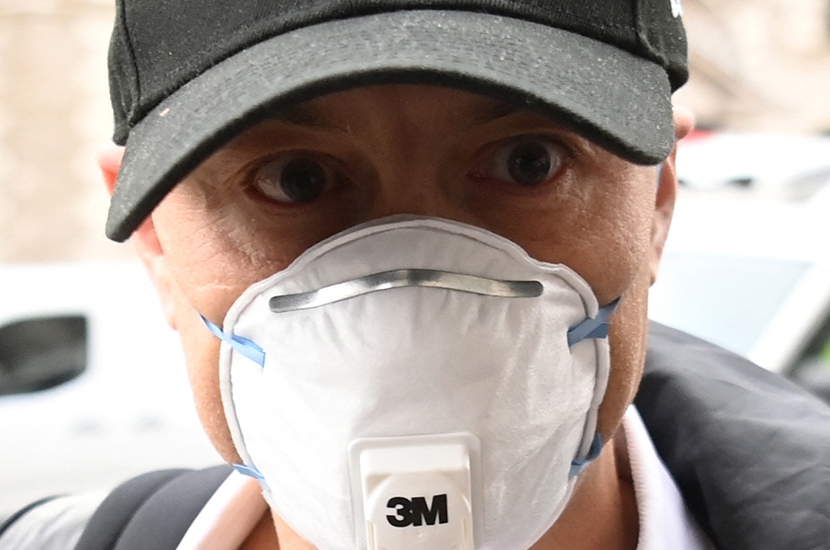It is hard to deny the importance of the issues raised this week by Dominic Cummings. His decision to identify the many mistakes made at the start of the pandemic is not about seeking vengeance; it is a vital process to ensure that errors are identified and not repeated. A vaccine-evading variant or a new virus could come along at any time. Should this happen, ministers must be ready.
Some of the world’s finest minds worked on pandemic planning, in Britain and throughout the western world. The UK was once ranked as more prepared for a new virus than any country in Europe. But the failure to provide adequate PPE equipment was the most visible sign of implosion. We had made a plan to fight the last war: to tackle a new influenza, rather than a Sars-style coronavirus that Asian countries had widely anticipated. Cummings was candid about his own regrets: specifically, failing to run a ‘red team’ analysis (i.e. a critical assessment) of the pandemic plan.
This is a crucial point. Efforts could have been made to find dissenting experts who would have pointed out flaws in the old plan. A blind eye was turned to minority arguments, with calamitous results. The question is whether things have now swung the other way, with a refusal to take a critical look at the effect of lockdowns — and if this failure means we might yet again repeat errors.
A blind eye was turned to minority arguments, with calamitous results
Initially, Sage modelling underestimated Covid. But it then lurched from one extreme to another: wildly inaccurate advice convinced the NHS a Covid tsunami was on the way, so 59,000 ventilators would be needed on top of the 7,400 already in hospitals. Cummings said he believed NHS capacity would be exceeded by a factor of ten. Some 30,000 machines were duly bought (at a cost of £570 million) but in the end there was a sharp drop in demand for NHS ventilators – the number of unused units trebled. Massive ‘Nightingale’ centres were built but ended up surplus to requirement. Even at the peak of the first wave, half of the beds in NHS hospitals were unoccupied.
What happened to the patients who would otherwise have been treated in those beds? What happened to the 20,000 pupils who disappeared from school rolls after lockdown? You will struggle to find any MP asking after either in the House of Commons. Even now, the cabinet has never been briefed about the side-effects of restrictions — it is as if no one dares quantify the collateral damage. A blind eye is still being turned. One form of groupthink has replaced another.
Cummings painted a damning picture of the ‘No. 10 system’, the political meltdown, the ‘smoking ruin’ of the Department of Health and the ‘wiring’ of government being fundamentally wrong. Which raises the difficult question: have things improved? Sage, convened as a committee of experts to answer questions, should never have been allowed to set policy. It ought to have reported to a higher committee who would consider the scientists’ advice, along with social and economic factors. Even now, this does not happen.
How are ministers supposed to make sensible decisions without being told the cost and benefits? Where is the rigorous analysis of the efficacy and side-effects of lockdowns? Rather than listen to dissenting voices, the No. 10 system seems determined to shut them down. Long after the initial lockdown, Neil O’Brien, a normally thoughtful backbencher and Downing Street adviser, spent much of last year seeking to discredit academics who contested the Sage consensus. He even helped set up a website to disparage them.
This ought to be the subject of the coming inquiry. Why was No. 10 so resistant to outside voices, in spite of its acknowledged failures? Did it have any involvement in Mr O’Brien’s campaign? Cummings spoke vividly about the sense of panic: that even after lockdown it was assumed the virus was still surging. Nobody seriously considered that the number of new infections was falling before lockdown because the public were not waiting for government edicts. By the day lockdown was announced, commuting was already down by two-thirds as guidance was followed to a degree never imagined by the modelling. New studies suggest that such voluntary action had forced Covid into reverse days before lockdown.
We know a lot more now. We have the experience of Sweden, the only European country to follow what had been the UK guidance-based strategy, before it was abandoned. Sweden was dealing with a Covid wave as big as ours, yet forced it back without lockdown. We should ask how and whether a guidance-based approach could have worked here. We also have the examples of Texas and California, which used very different tactics to tackle the virus. And we have data in the second and third waves, showing how much difference lockdown made.
‘It was a classic historical example of groupthink in action,’ Cummings told the committee. ‘The more people from outside attacked, the more people internally said, “They don’t understand, they haven’t got access to our information.”’ His point is simple: outside voices need to be listened to, especially if they disagree with the official strategy. The more open the process is, the more likely we are to identify and correct errors. There’s still time.






Comments